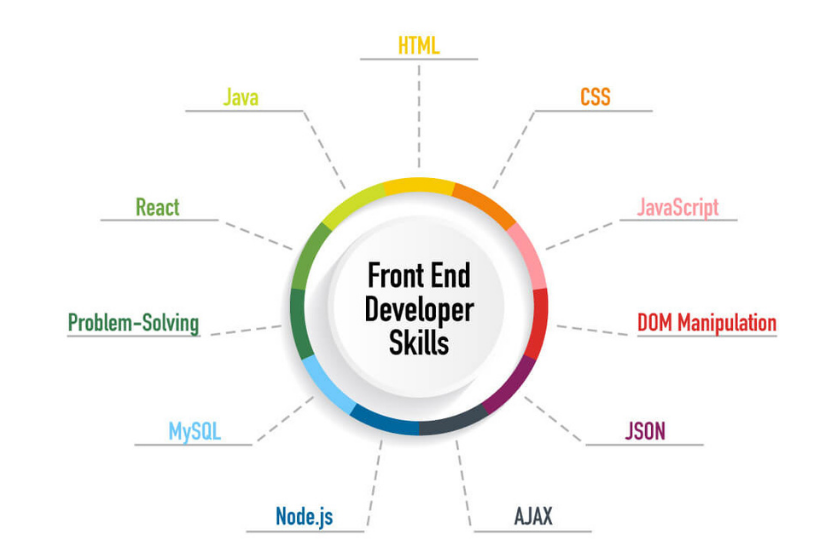
Negotiating salary is an art that is paramount for your career development and future trajectory. According to a 2023 Pew Research Center study about the differences in how people approach salary negotiation, it was found that 60% of workers did not try to negotiate salary when offered a new job. Among those who did negotiate salary, they all received more than the original offer. Many people skip negotiation because it’s uncomfortable; however, like interviewing or writing a cover letter, salary negotiation is a muscle that will only improve with practice.
This guide is an in-depth look at the salary negotiation process so you can confidently ask for the salary you deserve.
Read straight through, or use the agenda below to jump between topics.
- What is a salary negotiation?
- Why do employers care about salary negotiation?
- How do I set myself up for success?
- How do I negotiate my salary?
What is a salary negotiation?
Salary negotiation is the process of two parties, you and the employer, reaching an agreement on the terms and conditions of your employment. To put it plainly, it discusses how much you’ll be compensated if you accept the job offer. Salary negotiations generally start with an offer from the employer. Then you, the potential employee, can accept the offer or choose to negotiate the details of the offer.
Negotiating salary shows your employer that you are confident in your abilities and know your worth. Most employers expect you to negotiate. Hiring managers want to build talented teams with highly skilled employees. This is achieved by offering competitive compensation packages.
Why do employers care about salary negotiation?
For employers, salary negotiation is an important part of onboarding because they want happy employees. If you accept a job offer feeling disgruntled and devalued due to salary, you will likely continue job searching. This distraction keeps you from doing what you were hired to do: make an immediate positive contribution to your new team. To an employer, it is a huge cost savings benefit when you are onboarded happily with a mutually agreed upon salary. The goal of salary negotiation for you and the employer is to both walk away feeling like winners.
How do I set myself up for success?
Before you have an offer, it is important to understand your career values and non-negotiables regarding salary. It may seem too soon to think about compensation, but understanding what’s important to you before you have an offer will inform your job search decisions. We recommend evaluating what you need in your next role well before negotiating to ensure that you are putting yourself in the best position to achieve your career goals.
As you prepare to evaluate an offer and negotiate your ideal salary, consider what you’re specifically looking for in your next career move. Then, reflect on the following questions to begin thinking about your career values and how this next role fits into your broader career plan.
- What is most important to you?
- Where are you in your life, and where do you want to be in the future?
- What core needs does this job need to meet? Job security? Flexibility? Working on a collaborative team? Pay?
- Why are you leaving your current role? What do you need in your next role to be more fulfilled?
- What motivates you?
- What environments are best for you?
Additionally, identify your non-negotiables and trade-offs to compare how well an offer suits your needs and wants. For example, what aspects of the job are non-negotiable?
Expert advice
“Be prepared to walk away from the offer. Whenever you are navigating a career path, it’s hard to say no to job offers, but you may have to take a hard line with your salary expectations. Walking away from the offer may trigger the employer to meet your expectations, or it may not. You have to be prepared for either outcome. A positive spin on walking away can be, if I received one offer, I know I can obtain more.”
– Colin L., career expert at edX

How do I negotiate my salary?
There are typically three ways the salary conversation happens when applying for a new role. In the first, the salary range is stated in the job description. The second is when the employer tells you the salary in the first interview (or asks about your salary requirements). The third is when the negotiation happens in the final stage of the hiring process.
Typically, you have the most leverage when salary negotiations come last. However, this can be nerve-racking since you risk getting a low offer after multiple interviews. Do not let this deter you from negotiating. The company is interested in you as a candidate, or you wouldn’t have made it through multiple rounds of interviews. So, let’s learn how to successfully negotiate a salary that fits your career goals.
Preparation is the key to a successful salary negotiation. Before going into a salary negotiation, it is very important to research the market so that you and the employer can reach a mutually beneficial agreement based on industry trends and your value.
Knowing your market value upfront will put you in a powerful position when it’s time to negotiate later in the interview process. We recommend conducting this research during the application process so you’re ready for any salary-related questions that may come up before you have an offer in hand. Failing to research beforehand can lead to asking for too little or demanding too much – both can hurt you in the negotiation process.
To identify your market value, do some research using the following resources. Focus on learning more about salary trends based on location, industry, and job title.
Resources to research compensation:
Bureau of Labor Statistics (BLS) – The U.S. Bureau of Labor Statistics can share the annual mean wage for over 800 occupations. While this is aggregated across the United States and may not be tailored to your location, it’s a helpful place to start and can serve as one key data point.
Glassdoor.com – Glassdoor has two key features which can help you assess your worth. First, Glassdoor’s Know Your Worth tool provides a personalized calculator based on your location, title, and years of experience. Additionally, you can access company-specific data using Glassdoor’s search tool to find salary information. Current and former employees provide Glassdoor’s data; therefore, it’s often the best source for organization-specific information.
Payscale.com – Payscale’s What Am I Worth tool similarly aggregates data from users to provide a personalized estimate of your market value based on location, years of experience, and title.
Each of these provides strong data points; however, they will likely not align perfectly with your particular situation. To get a more accurate picture, we recommend validating this research with people in your network who currently or previously served in the positions you seek. The key is to ask questions about the data you find, not how much they make. For example, you may ask, “In my research, I found that salary ranges for employees with 5+ years of experience are $XX,000-$XX,000. Does this sound right to you?” While people may feel uncomfortable sharing their salaries, they are typically open to validating if your number is too high or too low.
Expert advice
“A big part of effective salary negotiation is based on the candidate’s confidence to present a figure backed with proven data. Performing in-depth research is a key element of building that confidence.”
– Colin L., career expert at edX

In an ideal world, salary would not be discussed until you have an offer in hand; this is when your negotiation power is highest. But this isn’t always possible as recruiters and hiring managers increasingly ask about salary expectations in screening interviews and sometimes in the application itself. Employers want to know if they can afford you. Providing a number too low may hurt you in the negotiation process, but offering a number too high may price you out of the competition. If you find yourself in either of these positions, consider using the following language to guide you through the interaction:
What if a recruiter or hiring manager asks, “What are your salary requirements?” Until you know the full compensation package details, don’t suggest a number. Instead, consider sharing where you are in your career and your research.
Sample answers:
“I really like what I’ve heard so far and am interested in potentially becoming a member of your team. I would be excited to bring my skills to XYZ. May I ask what range you have in mind?”
“I’m excited about the position and look forward to taking a big step forward in my career. I would love to learn more about the specifics of the role before sharing a number.”
If the recruiter or hiring manager is persistent about a number, consider the following language:
- “Considering the requirements in the job description and my research, it seems that acceptable salaries for this role range between $XX,000 and $XX,000. I am flexible and willing to negotiate within this range, depending on additional benefits and advancement opportunities. Does this meet your expectations?”
What if a recruiter or hiring manager asks, “What is your current salary?” You may encounter a recruiter or hiring manager who asks for your current salary. They typically do this to determine whether or not they can afford you. If possible, answer the question with a salary range and offer your willingness to negotiate.
Sample answer:
- “I don’t feel comfortable sharing that information at this time. I prefer to focus on the position at hand and the skills I can offer your organization.”
If you are pressed for a number, outline the full picture of your benefits and salary compensation:
- “Currently, I’m making $XX,XXX. In order for me to make a comfortable move, I need to earn $XX,XXX. I hope you agree that my contributions, based on my track record and industry knowledge, will justify this salary.”
If you practice your responses and do your research, you will feel more confident and help the recruiter advocate for you by being clear and upfront.
With your offer in hand, understand that your base salary or take-home pay is just a small part of your total compensation package. Companies will typically offer you some combination of the benefits in the list below. Keep these in mind when developing your negotiation strategy, as there are many ways to negotiate beyond base salary.
- Base pay – total salary and cadence of paychecks.
- Bonus pay – guaranteed amount with a specific timeline or discretionary based on team or company performance.
- Paid time off (PTO) – amount of time off you can take fully paid. Clarify whether this needs to be earned over time or is immediately given upon hire.
- Fringe benefits – health insurance, retirement savings, life insurance. Most letters will not include this. Ask the employer for additional information.
- Stock options and equity – details usually vary based on the employer. Ask questions to determine the specifics. What is the vesting schedule? How long do you need to be an employee to be fully vested? What happens if you leave before fully vested?
- Tuition reimbursement
- Professional development
- Sick days
- Extended maternity or paternity leave
- Flexible work hours or work from home
- Remote options
- Supplies (computer, internet compensation, gas, money towards public transportation, etc.)
- Parking
- Professional development/certifications
- Start date — typically the start date is 2 weeks after you sign the offer letter. You can negotiate a sooner or later start date depending on your circumstances.
Once you have a strong grasp of what’s in your offer letter (and what is not!), it’s time to ask, “Is this job the right fit for me?” Answer the following questions to do a gut check to think about what is most important to you:
- Am I being offered fair market value in my base pay?
- Is the compensation package sufficient for my lifestyle?
- Do the benefits (health, dental, retirement, etc.) meet my needs?
- Can I comfortably complete the travel/commute required of me?
- Will this role help me advance in my career path?
- Do I like the company/organization culture?
- Does this role and/or organization align with my career values?
- Do I like the people I will be working with? Co-workers? Supervisor?
- Do I feel excited and/or ready to take on the responsibilities of this role day-to-day?
There is no right or wrong answer. Everyone’s perception of a job offer differs based on career values, priorities, stage of life, etc. You can certainly ask for other opinions, but try to focus on your needs, wants, and long-term career goals.
When developing your negotiation strategy, think beyond base pay. While you certainly want to ask for higher pay based on a strong business case, prepare for the possibility that there is no room for negotiation. Often, salary is tied to a specific budget line item or grant allocation. Therefore, if the salary is too low for your needs, you should be prepared to walk away.
Certain aspects of a compensation package are typically more flexible than others, and sometimes they are even more valuable than base pay. Knowing which aspects of an offer are more negotiable than others is important.
Pro tip:
Always go into a negotiation with your “walk-away” number. No matter how desperate you are to land a job, you need to be sure it provides what you need to sustain your lifestyle. Identify your “walk-away” number before the conversation and stick to it.
Let’s negotiate! You only get one shot to negotiate your offer, so preparation is key! The most effective strategies to confidently communicate your worth are to make a business case, identify your ask, and practice!
Make a business case
Confidently convey your value by highlighting your skills, experience, qualifications, and accomplishments. This will support your counter and justify your ask for the hiring manager.
Reflection: What are the top three traits/skills the company/organization seeks? How do you meet or exceed these requirements?
Develop your ask
Identify your range and walk-away number. Then list your three priority benefits in order of importance to negotiate along with salary.
For example:
- Desired range (based on market-value research): $62,000 to $69,000
- Top three benefits: ability to work from home, paid vacation days, professional development allowance
Ask: Can the base salary or bonus be increased?
- “I’m really excited to work here and believe my skill set applies well to what you’re looking for. I appreciate the $60,000 salary, but was looking for a position in the $69,000 range. Could we look at a salary of 69,000 for this position?
If the employer agrees to your request, you have a deal! However, if there isn’t enough room in the budget to meet your request, follow up with additional benefit requests to make up for lost salary. We recommend having three benefits “asks” at the ready. If they don’t accept one, ask about the others:
- “I understand the best you can do is $64,000 and are unable to come up to $69,000. If you can do $64,000 in addition to [the ability to work from home two days per week/one extra week of paid vacation/professional development allowance], I would be happy to accept.”
Pro tip:
Silence is golden. A moment of silence can be a powerful negotiating tool and a strategy for collecting your thoughts. About 15-30 seconds of silence can help you get what you want.
Practice
This may sound like overkill to some people, but it’s a good idea to practice the conversation you’re likely to have with the hiring manager. Ask a friend or mentor to practice with you. The ideal partner is business-savvy and can coach you on projecting confidence and answering unexpected questions. Running through your delivery several times can make you feel more sure of yourself heading into the salary negotiation.









